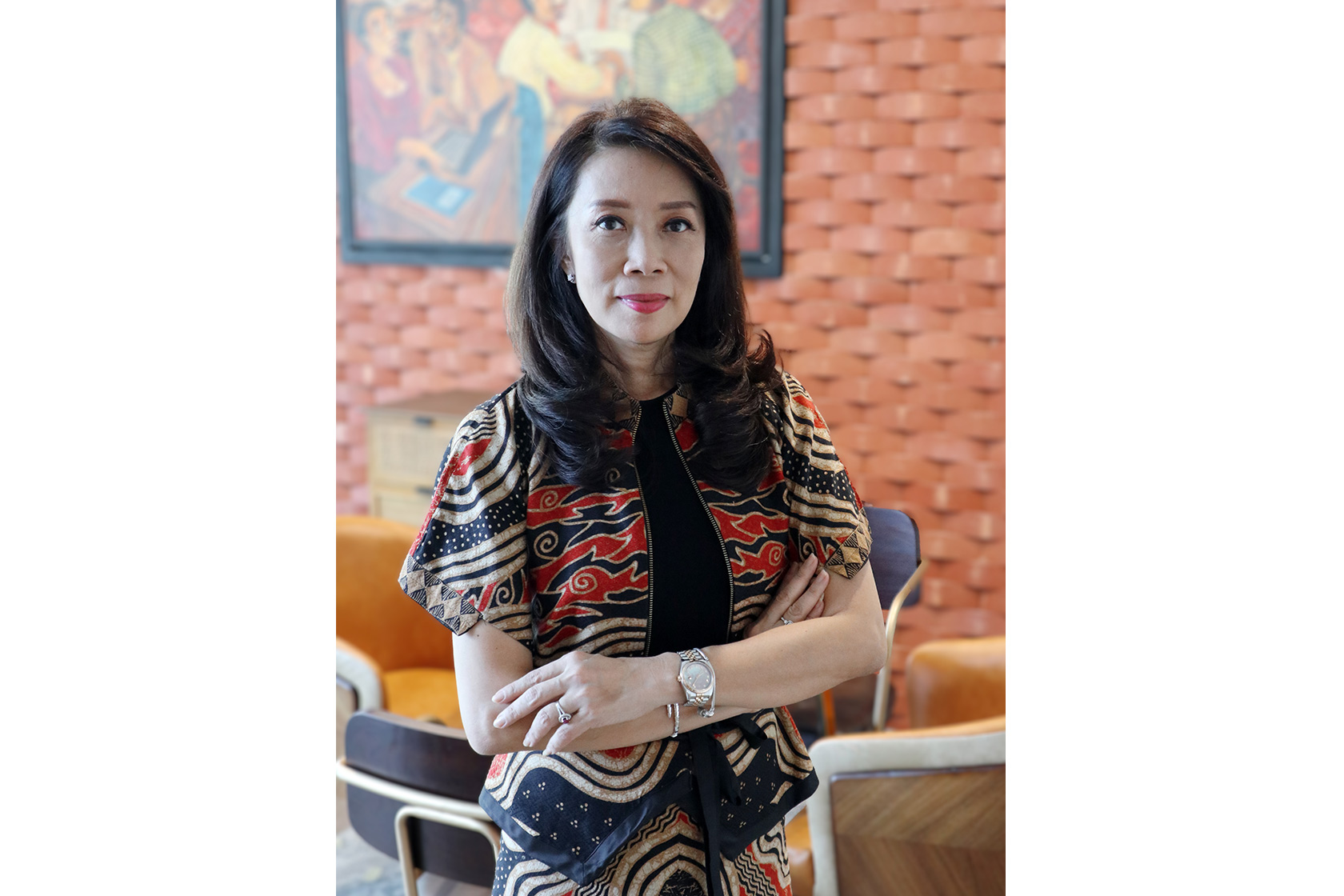After first glimpsing the potential of the internet as a student in Australia in the 1990s, Caroline Gondokusumo became one of Indonesia’s tech trailblazers. For her next mission, she plans to bring the power of connectivity to the most remote parts of Indonesia.
Caroline is the CEO of the biggest private wireless service provider in East Java, PT Dutakom Wibawa Putra, also known as D~NET. She is also the founder of Omadata Indonesia Data Center and IT Wireless Distributions.
But surprisingly, she wasn't always tech-savvy.
Caroline first encountered the internet in Australia as a Bachelor of Business student at the University of Technology Sydney in 1993.
She was a rebellious teenager who had just finished high school when she decided to study in Australia to prove to her family that she could live independently.
"But once I started living in Australia, I realised that I needed my parents more than I thought,” Caroline explained. “That made me appreciate my parents more than ever."
Developing IT Literacy
At university in Australia, Caroline was amazed at the lecturers' support.
"Every time I asked a simple question, the lecturers answered in such detail. They appreciated the students’ enthusiasm and wanted them to understand the subjects even if it meant going back to the basics,” Caroline recalled.
The accomplished businesswoman doesn’t mind admitting that she once lacked IT literacy.
"I used to type using one finger on each hand, and there was also a time I didn’t know how to choose a proper PC for myself,” Caroline chuckled.
The first time she experienced the magic of the internet was during her studies at the University of Technology Sydney.
"At first, my friends taught me how to use chatting applications like internet relay chat, commonly known as IRC," she said, recalling when people still used complex Linux/Unix commands.
As she had fun interacting with people worldwide through IRC, Caroline realised the internet would be the future for everyone.
“The transformation from an era of correspondence by mail to the era of e-mail that could be sent and received in seconds, made me sure the internet was going to be a big thing.”
The Future Belongs to the Risk-Takers
Following graduation from the University of Technology Sydney in 1996, Caroline worked at an internet service provider in Jakarta for less than a year before establishing her own in Surabaya.
She established D~NET in 1997. At the time, it took an effort to convince her customers and clients about the importance of the internet.
So, instead of promoting and selling products, Caroline focused more on educating and raising awareness about what the internet could do.
“Back then, so many people doubted the usefulness of the internet. They argued why they should use the internet when they could do business internationally only using a fax machine," Caroline explained.
As a CEO with no IT background, Caroline faced difficulties when making decisions concerning technical issues.
“Through a lot of discussion, I have learned so much from my engineer team,” she said.
When the Asian financial crisis hit, Caroline was grateful she had learned finance and financial management during her studies in Australia.
She avoided an exchange rate spike when she purchased the initial company assets, such as the remote access servers and other IT equipment, just before the crisis happened because she had learned about hedging, a strategy to limit risks in financial assets.
“I studied international business in Australia, and during the finance class, I was taught what hedging is. I can't imagine what would have happened to D~NET if I didn’t.”
Seeking Opportunities in Australia
One of the keys to Caroline’s success has been her keen ability to perceive business opportunities.
With the motivation to expand her network and seek new opportunities, Caroline joined the Indonesia-Australia Business Council (IABC) in 2008.
In 2012, Caroline and her husband founded InvestOz, a company that supports Indonesians who want to invest in property in Australia.
"People often think investing in Australia is difficult when it's not," she said.
Caroline also became a business mentor at Trade and Investment Queensland from October 2019 to September 2020.
"At that time, I mentored Australian companies interested in entering the Indonesian market. The mentorship included sharing the market situation. I went the extra mile to connect and arrange business presentations to the related institution for their potential clients in Indonesia.”
Contribution to Building Indonesia 4.0
In 2009, Caroline began to diversify her businesses by establishing Omadata, a server hosting provider in Indonesia, and in 2010, Spectrum Indonesia, a distributor of wireless internet hardware.
After decades of business in IT, Caroline knew that many areas in Indonesia still needed connectivity to the internet.
Eventually, in 2019, Caroline changed the vision and mission of D~NET to include contributing to the country by building networks in remote places. The company aims to provide internet connections to 1,000 villages in Indonesia by the end of 2023.
Caroline hopes her effort will support education and training and increase productivity in Indonesia. She said the goal aligned with the Making Indonesia 4.0 roadmap, initiated by President Joko Widodo in 2019.
"We can't just wait for the government. There must be private sector involvement in building connectivity in Indonesia."
In 2019, Caroline also established XINAU, a non-profit organisation operating an IT training centre in Sidoarjo, East Java. XINAU helps high school graduates who can’t pursue higher education due to financial constraints.
At an affordable price, XINAU students learn how to use operating systems from Mikrotik and Ubiquiti products, covering wireless traffic and user management aspects.
“Because D~NET has a B2B business model, we have many clients that need IT manpower, and we can provide it through XINAU’s graduates,” Caroline said.
XINAU students receive certificates after completing the course and have the opportunity to do on-the-job training.


 Tech Trailblazer Caroline Gondokusumo’s Vision to Pioneer Internet Access in Remote Indonesia
Tech Trailblazer Caroline Gondokusumo’s Vision to Pioneer Internet Access in Remote Indonesia
